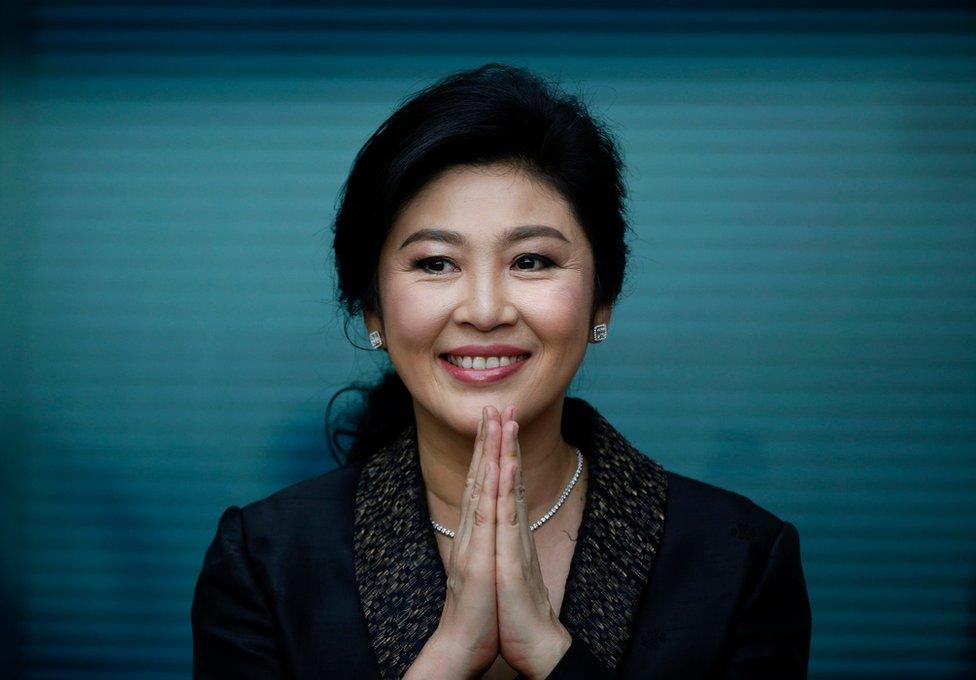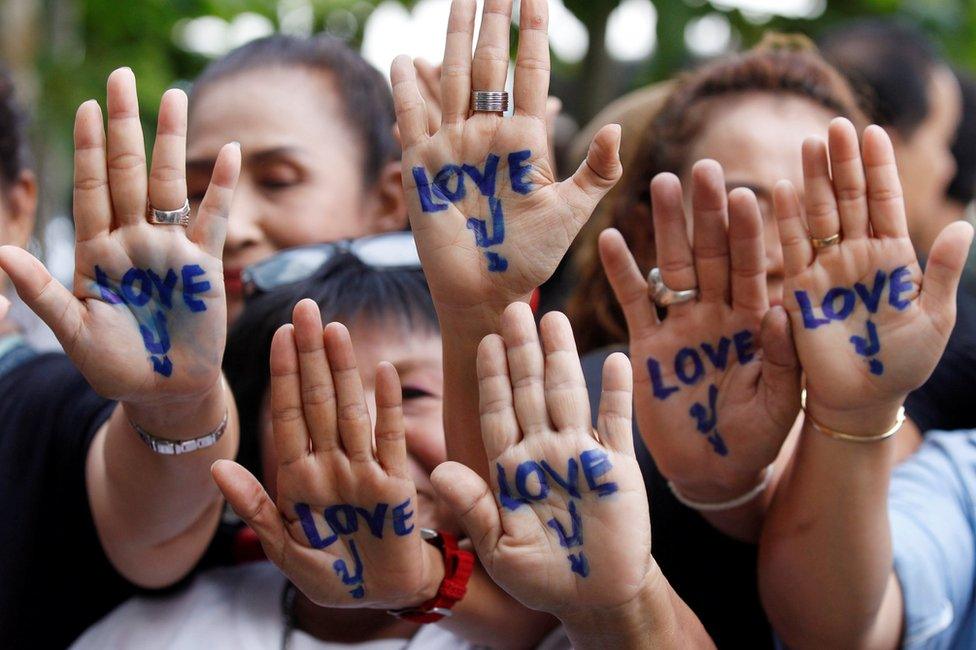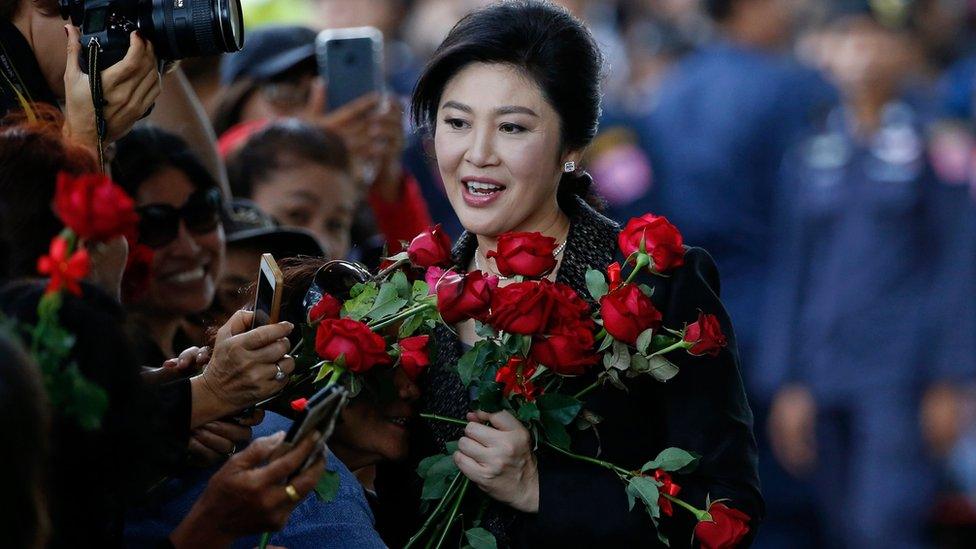Profile: Yingluck Shinawatra
- Published

Ms Yingluck is the youngest sister of controversial figure Thaksin Shinawatra
Yingluck Shinawatra made history when she became Thailand's first female prime minister in 2011 on a wave of popular support.
But she was plagued by criticism over her governance and links to her brother, former Prime Minister Thaksin Shinawatra.
Her time in office ended acrimoniously in early May 2014, when the constitutional court forced her to step down after finding her guilty of abusing her power.
The army later overthrew her government in a coup, and formed the present military-backed government of Thailand.
'Puppet'
Born in 1967, Yingluck Shinawatra first carved out a career in the corporate world before joining politics.
She was managing director of AIS, the telecommunications firm her brother founded, and managing director of SC Asset Company, a family firm involved in property.
Before the 2011 election, Ms Yingluck, who has two degrees in politics, had never run for office or held a government post.
Critics were quick to point out her political inexperience, saying her main qualification appeared to be the fact that she was the youngest sister of Mr Thaksin, the billionaire who was ousted as prime minister by the military in 2006 and jailed in absentia for corruption.
They suggested her primary role was to marshal the Thaksin faithful - the mainly poor rural voters who kept him in power - and then serve as his proxy as he governed from overseas exile.
Ms Yingluck performed well on the campaign trail - people seemed to warm to her. The numerous supporters of Mr Thaksin backed her party Pheu Thai - which her brother founded - in 2011 polls.

Key facts
Born 21 June 1967
Youngest of nine children; elder brother is former PM Thaksin Shinawatra
Graduate of Chiang Mai University as well as Kentucky State University, where she earned a master's degree in political science and business administration
Married to businessman Anusorn Amornchat; has one son

Speaking to the BBC after her election win, Ms Yingluck said she planned to work hard. People would trust her, she said, as long as the government preserved the rule of law and treated people fairly.
"As long as we solve problems, I hope Thai people will give me a chance to prove myself and show my sincerity," she said then.
Three months later, she faced her first challenge as parts of Thailand were hit by severe flooding, and her government was accused of being unprepared.
In early 2012, her government approved a compensation fund for victims of recent political unrest, including the families of the deceased, as well as those who were hurt or "unfairly detained".
Ms Yingluck was also seen to establish cordial ties with two key institutions, the royal palace and the military.

Ms Yingluck and her Pheu Thai party still command a significant following in Thailand
But she also launched a controversial rice subsidy policy, whereby her government bought rice from farmers at above market rates to boost rural incomes.
It ended up hitting Thailand's rice exports hard, leading to billion-dollar losses and an accumulation of huge stockpiles of unsold rice.
Her opponents said the programme was rife with corruption and many farmers were left out of pocket.
Snap poll
It was, however, a political amnesty bill that provided the trigger for protests which foreshadowed Ms Yingluck's demise.
Her government proposed legislation allowing amnesty for those convicted of political violence that took place after the coup that ousted her brother, including the mass street protests that paralysed Bangkok in 2010.
It proved unpopular with some of her traditional supporters, who argued it would allow those responsible for the deaths of civilian protesters to go free.
It also sparked opposition fury, amid fears the ruling party would use it to allow Mr Thaksin back into Thailand without having to serve his jail term.
Street protests erupted in Bangkok. Ms Yingluck appealed for calm, and allowed the amnesty bill to fail in the Senate.

Street protests erupted in Bangkok in 2013
Her government also called a snap election, which was boycotted by the opposition and later declared unconstitutional.
Then the courts stepped in and removed Ms Yingluck - their case was linked to the transfer of her national security chief. Weeks later, the military ousted what was left of her government, leaving Thailand once again under military rule.
Aftermath
After leaving office, Ms Yingluck continued to be dogged with controversy, particularly over her rice scheme.
In 2015, an army-appointed legislature formally impeached her, resulting in a five-year ban from politics. It also launched a legal case against her.

Ms Yingluck's court appearances have attracted crowds of supporters who often give her flowers
Ms Yingluck has denied wrongdoing and insists she is a victim of political persecution, as do her numerous supporters.
If found guilty in the criminal case, where she has been charged with negligence, she faces up to 10 years in jail and a lifetime ban from politics.